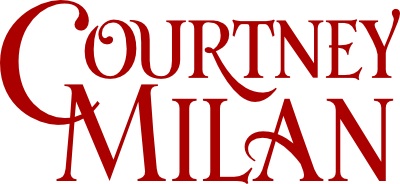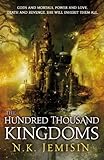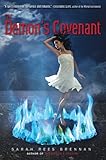Kalen Hughes has a very thought-provoking post over at History Hoydens about the difference between historical romance and historical romance, which you should read.
Caveat: I say all this as someone who really, really tries to get things right. Which is why I’m in England on a research trip right now. And I know that sounds sexy, but what it means is that I spent two hours today taking literally hundreds of photographs of the period maps in Bristol’s City Museum, and I will spend the vast majority of tomorrow at the Bristol Records Office, reading the City Recorder’s notebooks and notes from the Petty Sessions for the years in question. It’s why I spend hours with the Oxford English Dictionary and the Oxford Historical Thesaurus in front of me when I’m in the revision stage, checking hundreds of words; and why I ask Franzeca Drouin to look over my manuscripts for a second eye to accuracy once I’ve given it my very best shot, because I know I still miss stuff.
(Caveat the second: In my upcoming book, my heroine wears night-rails not made from linen. But she has them specially made for a particular purpose; in fact, she usually wears linen. As I found a few records of night-rails of non-linen-fabric for the super-wealthy, this fell into the category of historically possible attire, although it’s not historically average. She could have done so. She was motivated to do so. It fit the story for her to do so.)
In any event, Kalen makes the following assertion:
To me, it seems ridiculous to even bother writing “historical fiction†(be it romance, mystery, whathaveyou) if the “historical†part is optional.
I don’t think that the “historical” part of my books is “optional.” I work very, very hard at it. But I also don’t think that the history is the point of my books, either. Or, rather: I think the past is a vehicle for the present.
When Nathaniel Hawthorne wrote The Scarlet Letter, he wasn’t writing an indictment of Puritan hypocrisy. When Arthur Miller wrote The Crucible, he wasn’t trying to villify the people who ran the Salem Witch trials. And I am not trying to say that I am the next Hawthorne or Miller. But neither Hawthorne nor Miller were “ridiculous” even though they weren’t always historically accurate, and were not striving for historical accuracy. It would be bizarre to condemn The Crucible on the grounds that it was a wallpaper historical courtroom drama. That’s because Hawthorne and Miller weren’t trying to write period pieces. They were using the past as a safe space to discuss the present.
I write in the late 1830s/early 1840s. I do so not because I am completely enamored of early Victorian times, or because I think it is sexy or because I think that it has pretty clothing (because, actually, the clothing of the era is quite ugly). I’ve explained this elsewhere in greater detail, but I write in a time period where everything is changing: the notion of society, the meaning of community, even what things have value. Towns are breaking up; the industrial revolution is hitting hard, and nobody knows what tomorrow will look like. It’s a time of enormous uncertainty.
In other words, it sounds a lot like modern times.
Today, we know that the industrial revolution wasn’t as horrible as some feared (Mr. Milan, who is a Luddite, will contest this). We know that the democratization of society and the erosion of class boundaries was a good thing. We know that giving women more freedom worked out okay. It didn’t destroy the family. It didn’t lead to anarchy. My readers know that; I know that. And so the historical setting is a safe place to explore what it means when society, culture, community, and even basic notions of value all change drastically, with that unknown future hovering on the horizon, waiting to swallow your child’s inheritance.
I do a lot of research–hundreds of hours for every book. When departing (or even appearing to depart, which is the bigger problem) from history, I agonize over the questions for weeks. I care about being historically accurate, to the extent that it is consistent with the story I am trying to tell. But I’m not ashamed to admit that if it comes down to a question between the accuracy of the history, and the theme and message and feel of my book for the modern reader, I will pick the theme and message and feel of my book every single time.
I’m not writing period pieces. And that’s not ridiculous.





